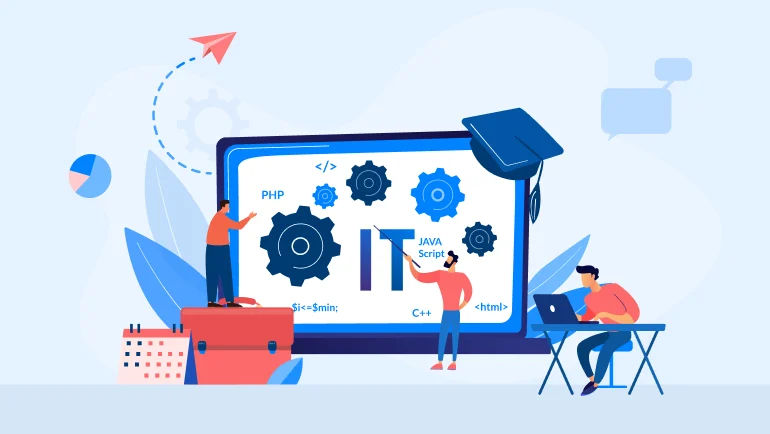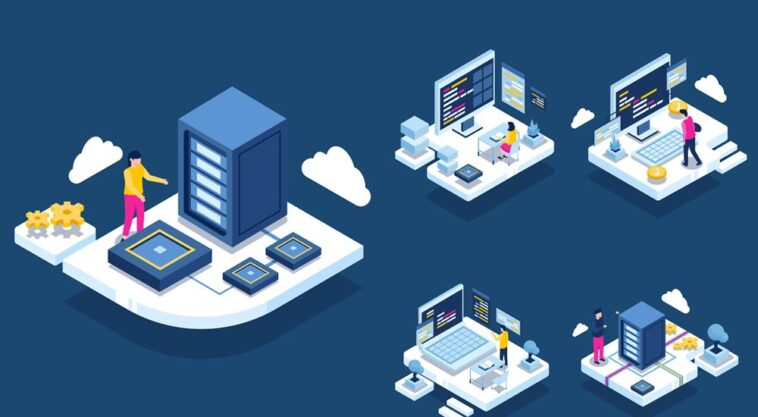Information Technology Enabled Services (ITES) is a broad term that encompasses a wide range of services that are delivered over the internet or other telecommunications networks. ITES services can be divided into two main categories:
- Business process outsourcing (BPO): BPO services involve the outsourcing of non-core business processes to a third-party provider. This can include tasks such as customer service, data entry, and accounting.
- Knowledge process outsourcing (KPO): KPO services involve the outsourcing of more complex tasks that require specialized knowledge or expertise. This can include tasks such as research and development, financial analysis, and legal services.
ITES services are in high demand from businesses of all sizes around the world. This is because ITES can help businesses to reduce costs, improve efficiency, and focus on their core competencies.

The global ITES market is expected to reach $372.8 billion by 2027. The growth of the ITES market is being driven by a number of factors, including:
- The increasing globalization of businesses: Businesses are increasingly outsourcing their non-core business processes to ITES providers in countries with lower labor costs.
- The growth of the digital economy: The digital economy is creating new opportunities for ITES providers to offer new and innovative services.
- The increasing demand for knowledge-based services: Businesses are increasingly outsourcing knowledge-based tasks to ITES providers in order to access specialized expertise.
The ITES industry is a major employer in many countries around the world. In India, for example, the ITES industry employs over 4 million people. The ITES industry is also a major source of foreign exchange earnings for many countries.
ITES is a key driver of the global economy. It helps businesses to reduce costs, improve efficiency, and focus on their core competencies. The ITES industry is also a major employer and a source of foreign exchange earnings for many countries.
ALSO READ :> Breast Cancer Awareness Month: 8 myths about the illness debunked
Here are some of the benefits of ITES for businesses:
- Reduced costs: ITES can help businesses to reduce costs by outsourcing non-core business processes to a third-party provider. This can free up businesses to focus on their core competencies and reduce their overhead costs.
- Improved efficiency: ITES can help businesses to improve efficiency by using specialized expertise and technology to streamline their operations. This can lead to faster turnaround times, better customer service, and increased productivity.
- Access to specialized expertise: ITES can help businesses to access specialized expertise that they may not have in-house. This can be especially beneficial for small businesses that cannot afford to hire full-time experts in all areas.
- Focus on core competencies: ITES can help businesses to focus on their core competencies by outsourcing non-core business processes. This can free up businesses to invest in their core businesses and develop new products and services.
.png?updatedAt=1696785159462)
If you are considering outsourcing ITES services, there are a number of things to keep in mind:
- Choose a reputable ITES provider: There are many ITES providers to choose from, so it is important to choose a reputable provider with a good track record.
- Define your needs clearly: Before you start looking for an ITES provider, it is important to define your needs clearly. What specific services do you need? What are your budget and timelines?
- Get everything in writing: Once you have chosen an ITES provider, be sure to get everything in writing, including the scope of work, the timeline, and the payment terms.
- Monitor the performance of the ITES provider: It is important to monitor the performance of the ITES provider regularly to ensure that they are meeting your expectations.
ITES can be a valuable tool for businesses of all sizes. By carefully choosing an ITES provider and managing the relationship effectively, businesses can reap the many benefits of ITES.





